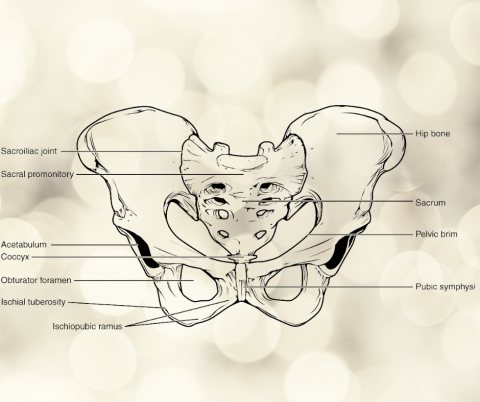Promoting Sexual Function and Pelvic Health in Women's Healthcare (2022-2023)
In 2020, more than 156,000 new cases of gynecologic, bladder, rectal and anal cancers were diagnosed among female patients in the United States. While survivorship is high, patients frequently experience devastating and long-lasting side effects of treatment. Few treatments exist to help women manage pain, improve sexual function and cope with genito-pelvic changes.
One novel approach is to develop interventions grounded in the biopsychosocial model of pain, which is based on research that highlights the associations between emotional distress, cognition and pain processing. Building on the work of the 2021-2022 team, this project team used the biopsychosocial model to develop an intervention to help women manage pain and changes that occur following cancer treatment.
This team collaborated with members from Duke Cancer Institute, Duke Cancer Symptom Management and Support, Duke Women’s Health Physical Therapy and Duke Psychiatry & Behavioral Sciences to complete the initial stages of intervention development for an integrated pelvic floor physical therapy and coping skills program designed to improve sexual function among women treated with pelvic radiation.
The team conducted semi-structured, in-depth interviews with patients with gynecologic, bladder, rectal and anal cancers in order to assess the feasibility of the intervention. They worked to understand patient needs and the facilitators and barriers to treatment. The team then used a qualitative description approach to code and analyze data gathered from interviews.
Timing
Summer 2022 – Summer 2023
Team Outputs
Regaining Sexual Function After Pelvic Cancer Treatment (2023 Fortin Foundation Bass Connections Virtual Showcase)
Improving Female Sexual Function After Pelvic Radiation (poster by Annika Agrawal, Annabelle Feibel, Michelle Huang, Shernice Martin, Kayle Park, Meghan Quinlan, Danica Schwartz, Sarah Arthur and Rebecca Shelby, presented at Fortin Foundation Bass Connections Showcase, Duke University, April 19, 2023)
This Team in the News
Meet Some of the Teams at the Bass Connections Showcase
See earlier related team, Promoting Psychological Adjustment and Pelvic Health Among Female Cancer Survivors (2021-2022).

Team Leaders
- Sarah Arthur, Arts and Sciences–Psychology and Neuroscience–Ph.D. Student
- Rebecca Shelby, School of Medicine-Psychiatry and Behavioral Sciences
/graduate Team Members
-
Molly Kolstad, Occupational Therapy-Doctorate
/undergraduate Team Members
-
Annika Agrawal, Psychology (BS)
-
Annabelle Feibel, Psychology (BS)
-
Michelle Huang, Neuroscience (BS)
-
Shernice Martin, Neuroscience (AB)
-
Seohyun Park, Psychology (AB)
-
Meghan Quinlan, Biology (BS)
-
Danica Schwartz, Gender Sexuality & Fem St(AB)
/yfaculty/staff Team Members
-
Diandra Ayala-Peacock, School of Medicine-Radiation Oncology
-
Brittany Davidson, School of Medicine-Obstetrics and Gynecology
-
Carol Figuers, School of Medicine-Family Medicine and Community Health: Doctor of Physical Therapy
-
Ashley Hill, School of Medicine-Psychiatry and Behavioral Sciences
-
Lisa Massa, Physical Therapy
-
Niharika Mettu, School of Medicine-Medicine: Medical Oncology
/zcommunity Team Members
-
Sisters Network Triangle NC
